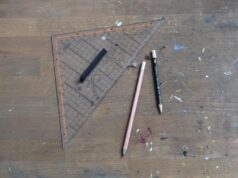
How long does it take to study at a university or college? As a student, it is difficult to calculate how much time was spent on writing different papers. Someone creates texts in a few hours and spends several days on them. There are always ways to quickly and efficiently cope with research work. In this type of academic work, the difficulty is not only to leave the plan and start writing paragraphs. Problems may arise even during the first preliminary study because sometimes there are fewer sources of information than questions. Professional authors know how to manage their time correctly and where to look for verified information. In this post, you will find tips for writing a research paper and will be able to write your research paper correctly.

Steps for writing a research paper
To create your research text, you need to have a clear plan, follow it, and master the research process. To create a work in this format, you must have a lot of free time. It is also essential to be motivated to speed up the work process. At the right moment, the motivation will help you not to give up and continue working on your task. Sometimes it is easier for a student to pay for research papers on the site essayshark.com if he does not have the time and energy and the deadlines for completion are coming to an end. In this way, you can delegate your difficulties and, at the same time, get a high-quality research paper. And to do your job yourself, follow the steps we have written.

• Choose a topic for research work.
The complexity of your work will depend on which topic you choose. If you were given a subject at school, then you should tune in to write it. But if you have a choice, you must think carefully about it. Your topic should be easy to research and have many different sources of information. You can look at what research papers have been written before you and ensure you have something to write about.
• Make a preliminary analysis of the information.
Read a few articles on your topic, and write down useful information you find in a notebook. At the same time, you can specify the author’s name and the page where you read it so you can later return to the source for reference. You also need to write information about the publication you read and specify the format (APA, MLA, etc.), depending on how your teacher indicated. Remember to use quotation marks so you can later find the quoted phrase or paraphrase it. Some students use index cards for their research papers to help them cope with writing.

• Make a plan of work.
Based on your preliminary research, draw up a plan for your work that you will follow while writing the research. When drawing up a project, it is essential to include all the most exciting and provocative points and ideas about your topic. You can also add questions and answers to help you conduct your research. Despite all the advice, it is best to use the method that is right for you. The primary purpose of writing a plan is to help you gather all your ideas and thoughts on a topic. It will be much easier to add new pictures or cross out old ones in the plan than later in an already written study.
• Formulate the thesis of the paper.
Try to make a clear and focused thesis of several points. Then you can return to the idea and reduce the paragraph to one or two sentences. Your view will determine the course of all your work, so it is best to correct the writing of the main block of text as you go. Take the trouble to write a thesis because it will first judge your professionalism.

• Do basic research.
You can use various sources of information in your research. It can be the Internet, newspapers, books, directories, or databases. Do not forget to write down on each page of your notebook exactly where you got the information for your research. Also, specify the format for further quoting in the form you set. Prioritize sources of information, and filter expert opinion from the general. In particular topics, you need to consider newer research so that your paper is up to date. In history, for example, discoveries continue and must be considered when writing your paper.
• Write the main block of text.
In your research, you need to be very consistent so that all information is structured. This means that the thoughts you express must have logic so the reader can grasp the essence of your research. It is also essential that your thesis gives a vector of direction to everything that you will tell in your text. You should not provide new questions in your work and should describe extensively why you made up such a thesis.

• Drafting an introduction and conclusion.
You need to take only two steps at the beginning and end of your paper. In the introduction, the remainder of the hook that the reader should perceive as a riddle, and in conclusion, bring all your thoughts to a logical conclusion. Do not give new information in the last sentences so the reader can form a final opinion about your research.
• Check it out in several steps.
It is essential to check your paper in several stages to show all professionalism. After you complete the first draft, you need to take a break from work so that later you can return to the review with a fresh look and be able to notice all previously undetected errors. It will be a shame to do a great job and then get a bad mark due to errors in the text. The second check will show you exactly where you added extra words and where, on the contrary, you did not open the question. Therefore, you must give yourself time to rest between each test step.









